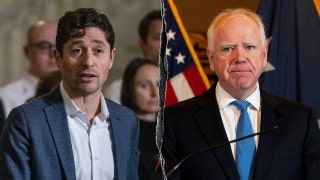Adm. Mike Mullen says the United States cannot control other countries around the world around the world, and that in future stability will depend as much on a country's economy as on its military.
"We're not going to change anybody's strategic calculus," he told an audience during a lecture series at the Woodrow Wilson Center in Washington.
The chairman of the Joint Chiefs says defense spending in many countries will likely stay static, but will grow significantly in regions such as Asia and the Middle East. Mullen pointed to China, India, Turkey and Brazil which he says will "probably emerge as leaders in their regions." He describes them as the "economic engines of our time."
Mullen also discussed the economic problems facing the United States and the need to get our fiscal house in order. Mullen stressed that the "national debt is the greatest threat to national security," a point he first made last summer which shocked many in Washington. Adm. Mullen said the U.S. defense budget will become at best "flat" over the next few years. That is a big change from the last decade when the budget nearly doubled to its current size of $530 billion as the Pentagon participated in two wars while facing a new and calculated enemy in the global War on Terror.
With all combat troops out of Iraq and numbers in Afghanistan expected to diminish greatly as soon as this summer, Mullen said the growing deficit will drive some very tough decisions as to what kind of military the U.S. wants to build in the future. He agrees with what Defense Sec. Gates' said Tuesday when describing what Congressional budget constraints would mean to the U.S. military. Gates said he'd "rather have a smaller, but superbly capable military then a larger, hollow, less capable one." Mullen says given the persistent challenges the U.S. faces, these policies and decisions have "real consequences." Not mentioning any budget cuts by name, Mullen seemed to categorize future funding decisions as "what must be done and what can afford to go undone."
After his remarks, Mullen answered questions from invited guests, which numbered just over 100 people. He joked with the audience to "keep asking questions" so members of the press would not be tempted to step in with questions of their own.
The wife of one retired Marine Corps colonel expressed concern about the way information from the Navy SEAL raid that killed Usama bin Laden has been released to the public, worrying about the ability of terrorist groups to understand our intelligence capability. Mullen said he had taken an oath that he would not say anything more about the raid, but he did chastise those that have been openly discussing details. He pinned those leaks on retired military, reiterating "that kind of input to the system is just not helpful."
Adm. Mullen's four-year term will expire this fall, and Fox News has learned that President Obama will name Army Gen. Martin Dempsey as his replacement.












































